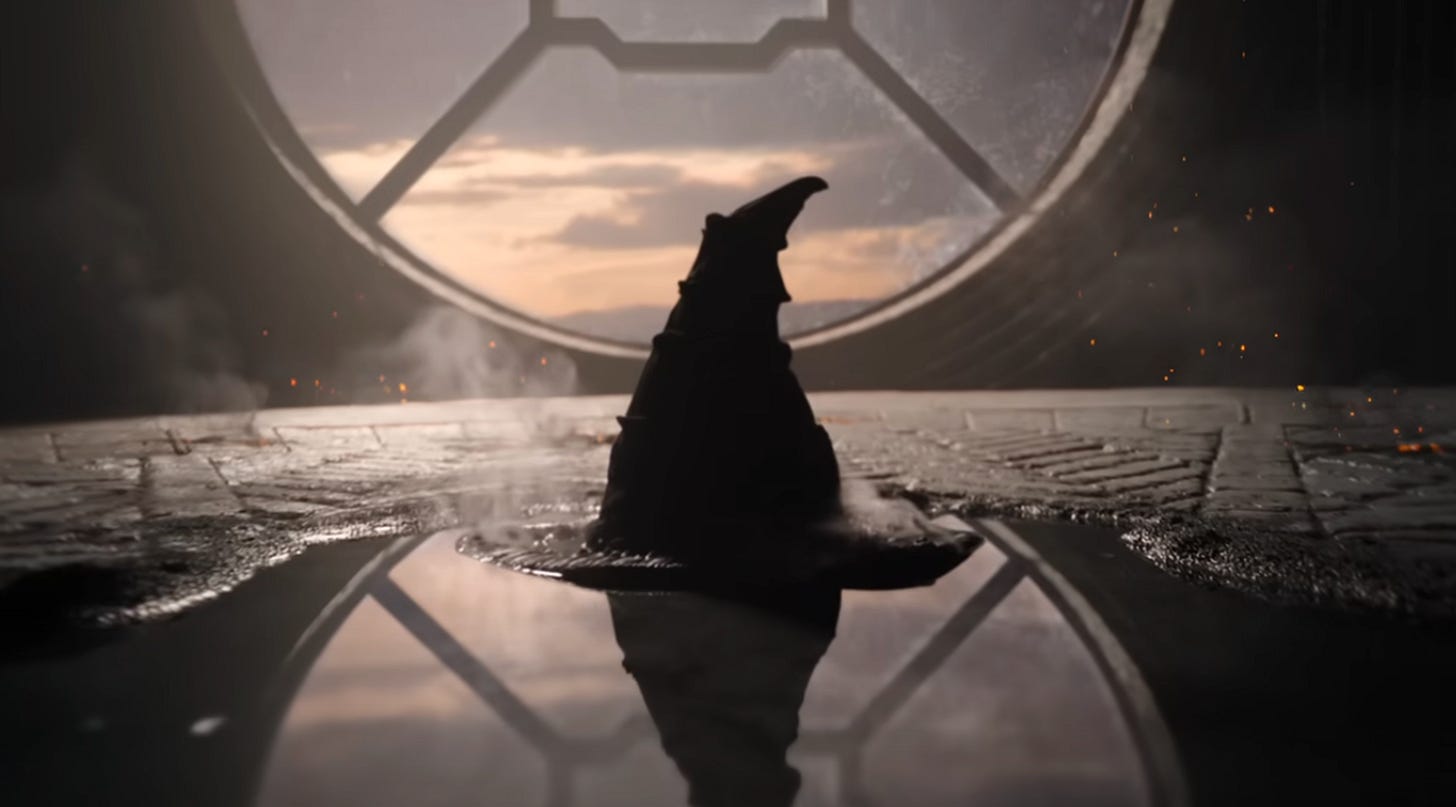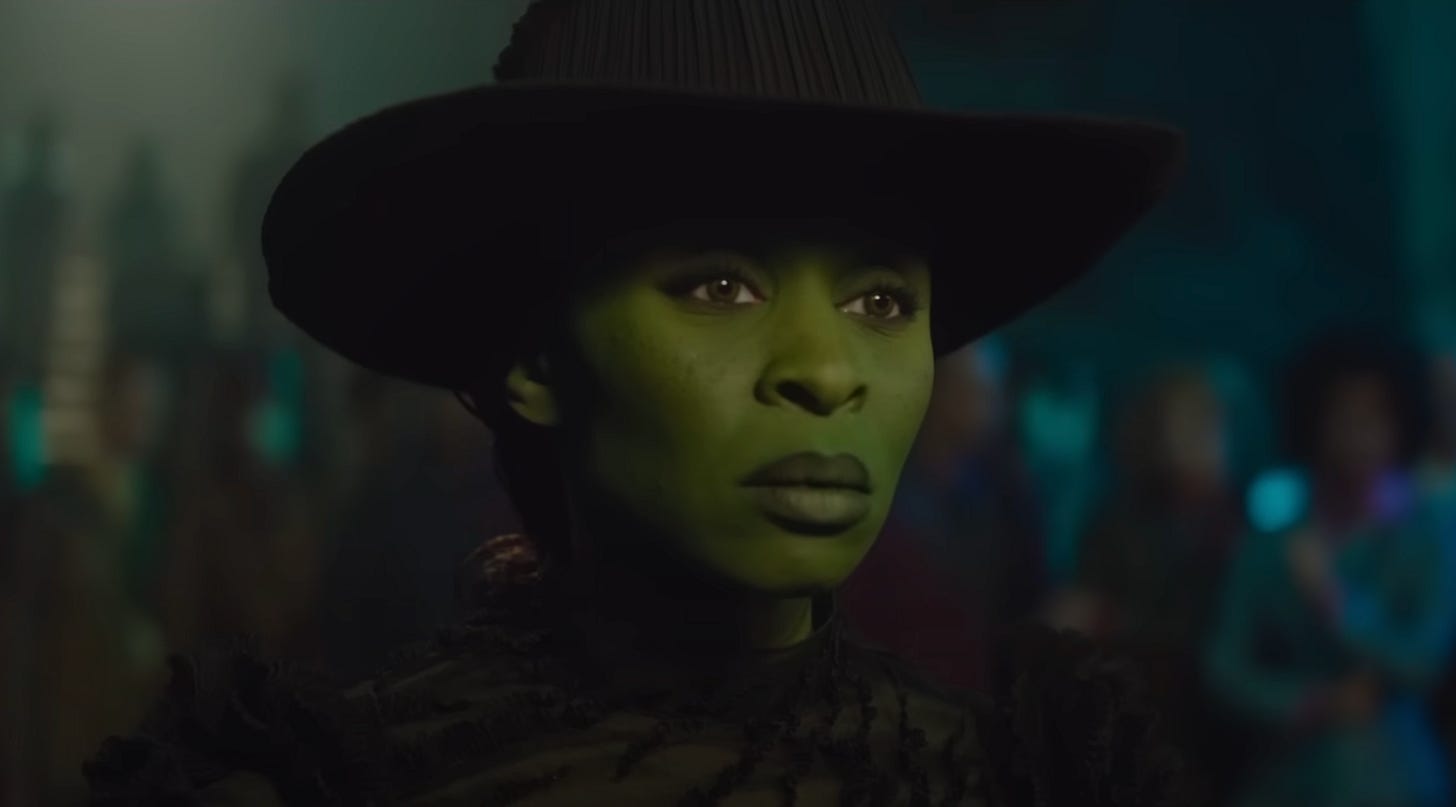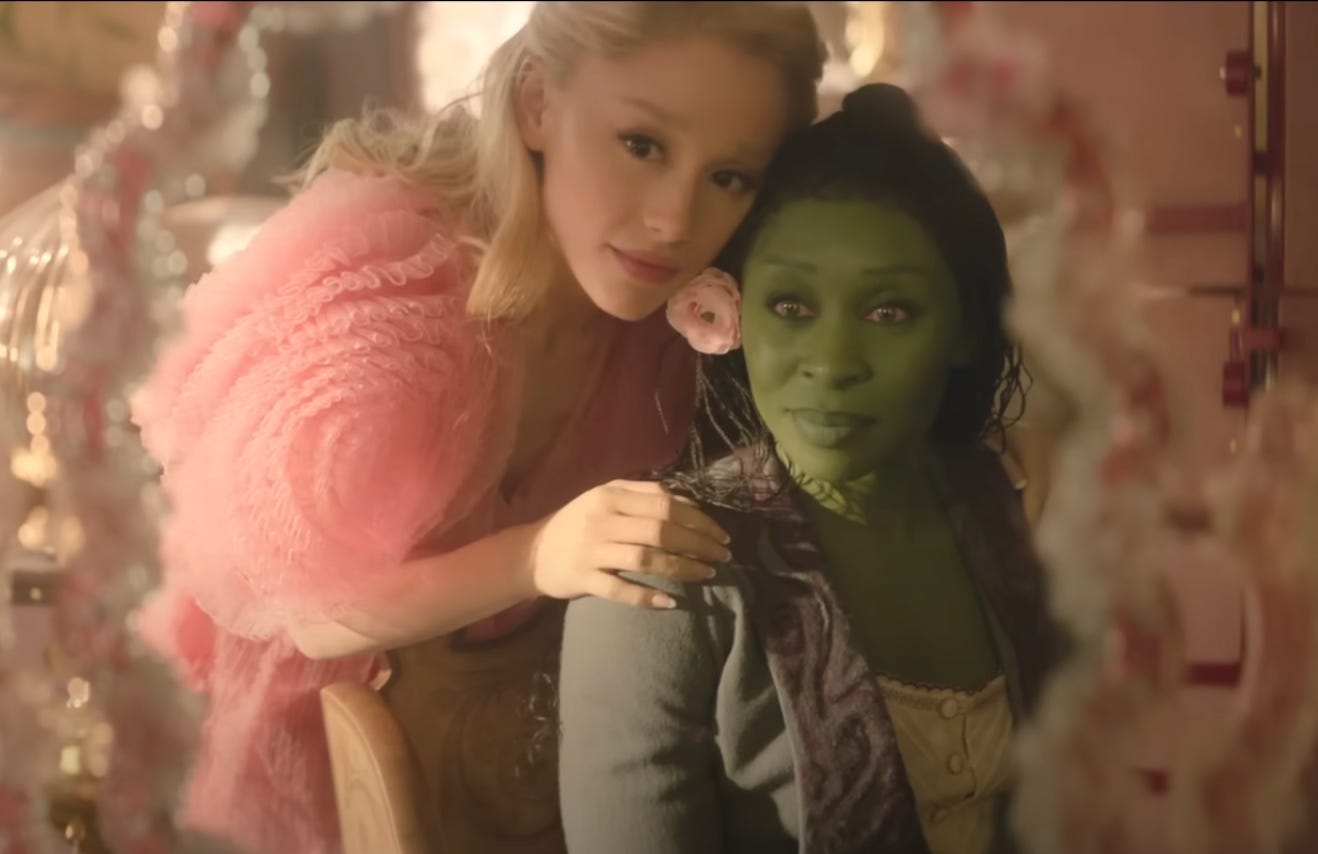The adaptation of the back story of The Wicked Witch from The West in The Wizard of Oz (1939) doesn’t start with a bang. Rather a feeling of dread sets in once you’re exposed to the first presentations of insufferability, thinking whether it was a mistake to commit yourself to two hours and forty minutes of a work that feels plastic and hollow on its introduction.
We’re first introduced to Glinda (Ariana Grande) whom we know as the Good Witch of The North from Dorothy’s adventure in the 1939 tale. A musical number kicks things off as the death of the Wicked Witch from The West is announced. The Munchkins, who have had what some might call a ‘modern’ makeover as they’re transformed into double the height than we’re used to seeing them, celebrate the event as Glinda enters the scene in her floating bubble.
Glinda reluctantly admits that she used to be friends with the Wicked Witch after a Munchkin questioned her. However, to justify herself, she must tell the story, thus thrusting us back in time to discover what happened between them during their time at university. Elphaba (Cynthia Erivo) whom we know to be the green-skinned villain is anything but wicked. Rather it’s Glinda’s narcissism that we develop a distaste for. Jealous and resentful of Elphaba’s intelligence, Glinda befriends her in an attempt to latch onto the success that she so desperately craves for herself.
The most unpleasant feature of Wicked is its aura of inauthenticity. Some of the most prominent roles feel as if they are just being acted out rather than lived in. Grande’s performance is the best example of this aura, as while she can certainly sing and dance, her skill in the acting profession doesn’t convey hopes that she’d be able to display competency in any other role outside the musical genre. Although she plays an immature character, there is nothing mature about Grande in reality. The childlike nature she displays in interviews and television appearances transfers into this role, feeling as if we’re just watching Grande in one of her music videos rather than inhabiting a soul other than her own.
This immaturity seeps into the wider environment of Wicked as its worldview leans towards that of a child. But you could argue that there is a point to this. As we venture deeper into this tale, we find ourselves observing the dirty games of human nature being played in conjunction with naivety. Despite her intelligence and awareness of Glinda’s manipulative tactics, Elphaba doesn’t refrain from allowing this ‘friendship’ to grow closer. You could dismiss Elphaba’s carelessness by her motivation to give people the chance to demonstrate their best selves. Once the manipulation and betrayal extend to other characters perceived before as trustworthy, the world of Wicked is transformed into a tale of cynicism.
When the clouds clear and the facade of nicety is uncovered by the revelation of one's true character, suddenly Wicked becomes a more interesting tale than what we were first presented with. The devastation of reality gives birth to Elphaba’s realisation that she has to play differently. She’s through with playing by the rules of someone else’s game, it’s time to trust her instincts, as the lyrics go to arguably the most popular tune from the musical: ‘Defying Gravity’. This moment is where the magic happens in Wicked, yet it takes us two and a half hours to fall under this spell.
By the end of the experience, you can safely evaluate that Wicked manages to balance the negative aspects with its rare talents albeit if they take some time to show themselves. They also succeed in leaving you with the desire to want to see part two of this tale. We can only hope that this second chapter coming in 2025 leads with the intelligence and warmth of the final act, otherwise returning to Oz may feel like somewhat of a wasted journey.
Out in UK cinemas now





